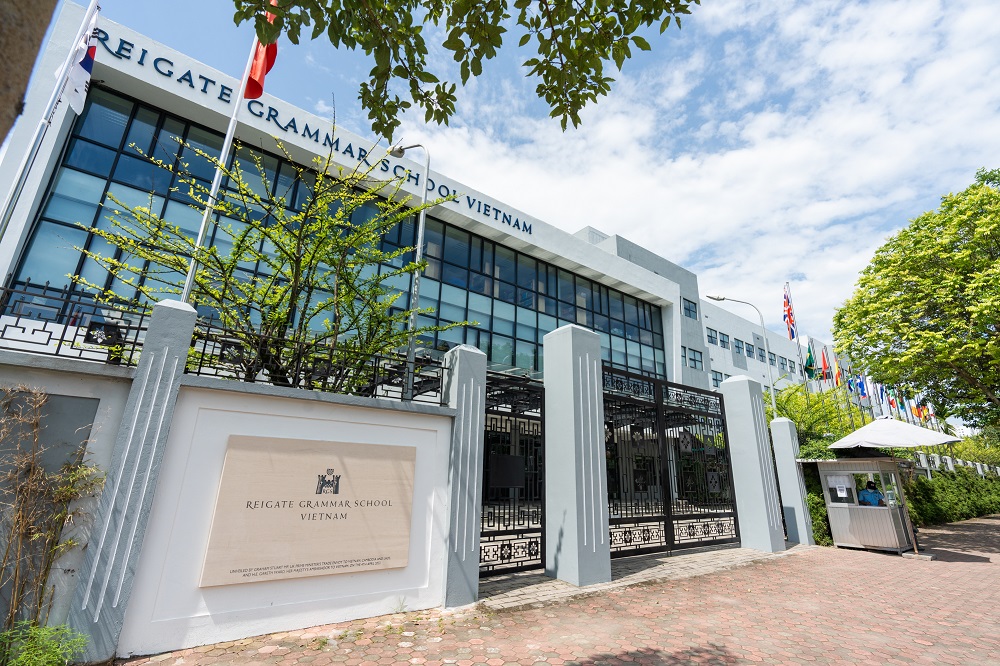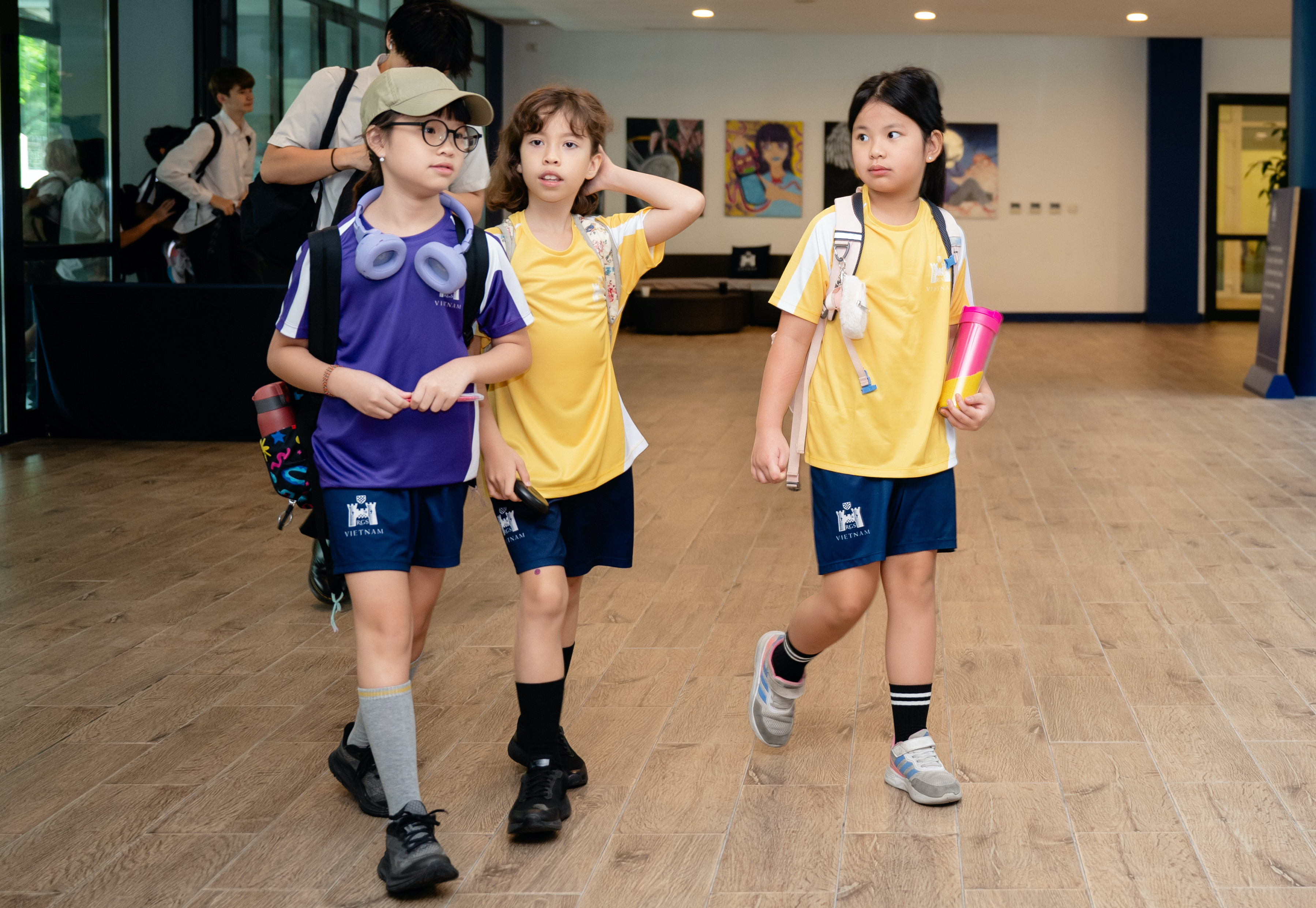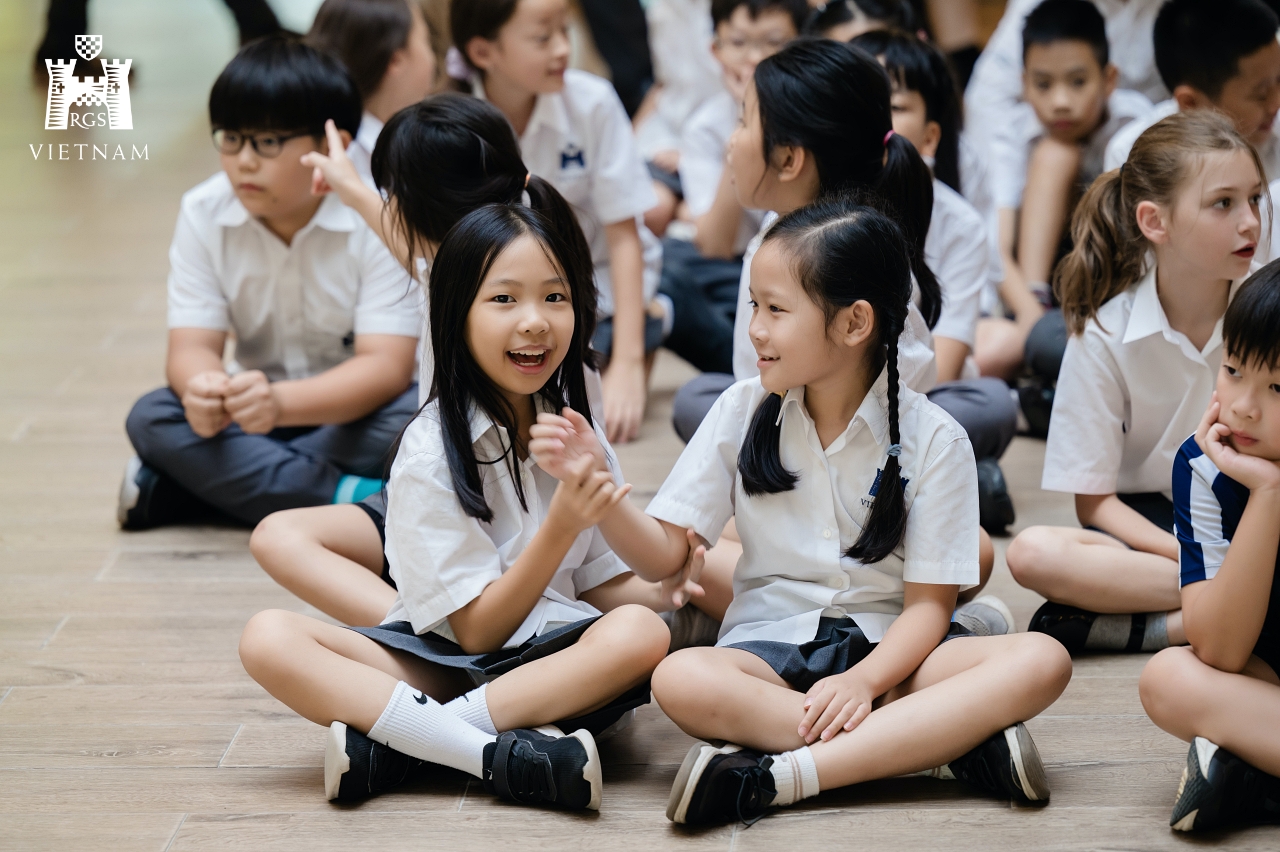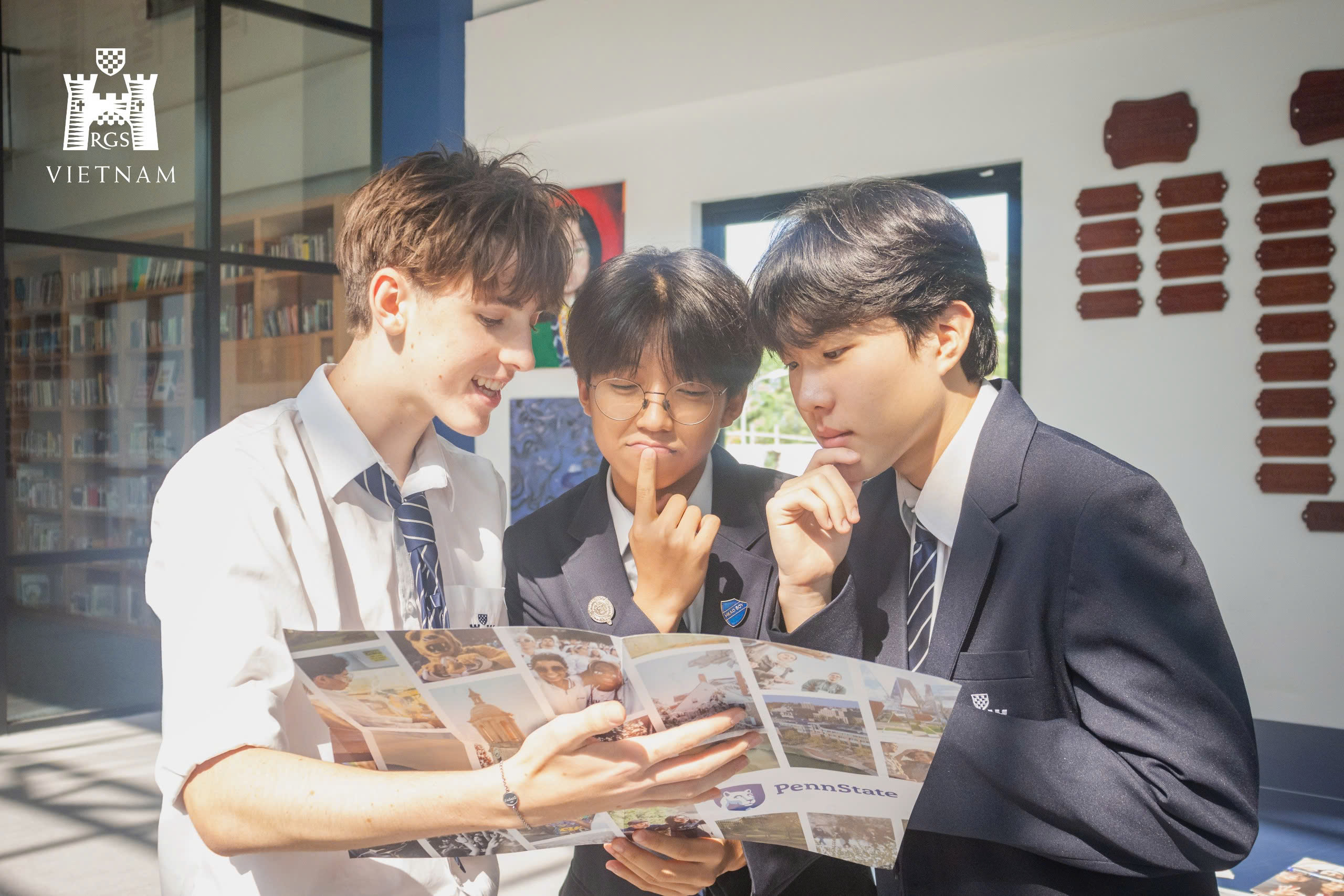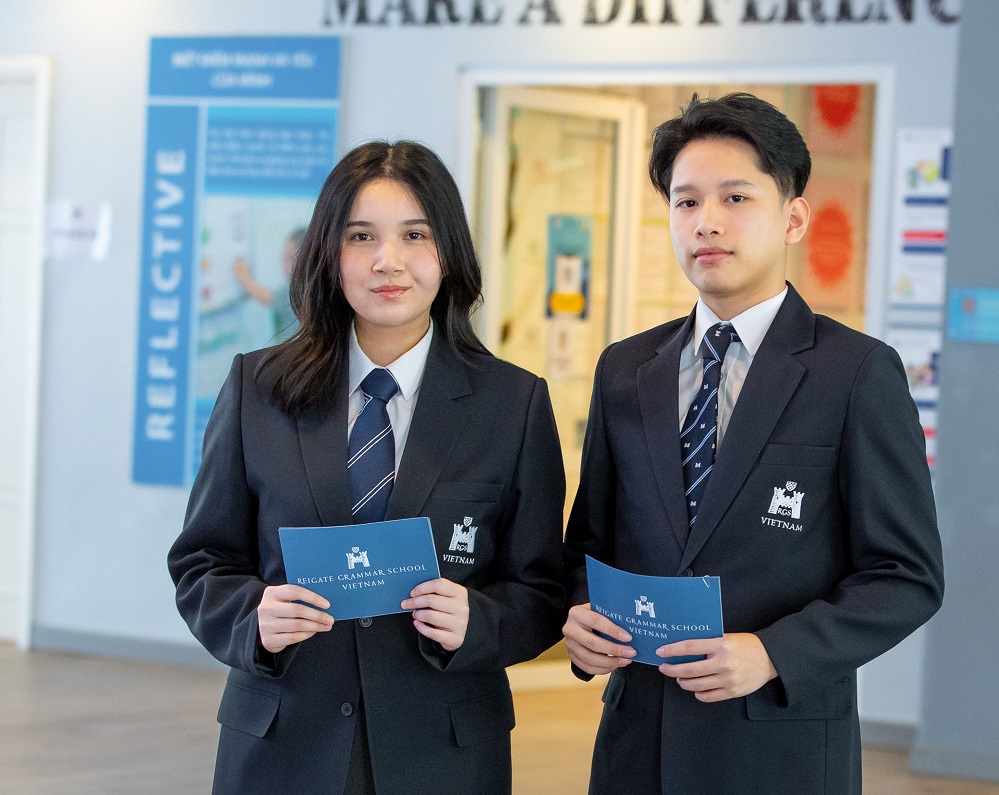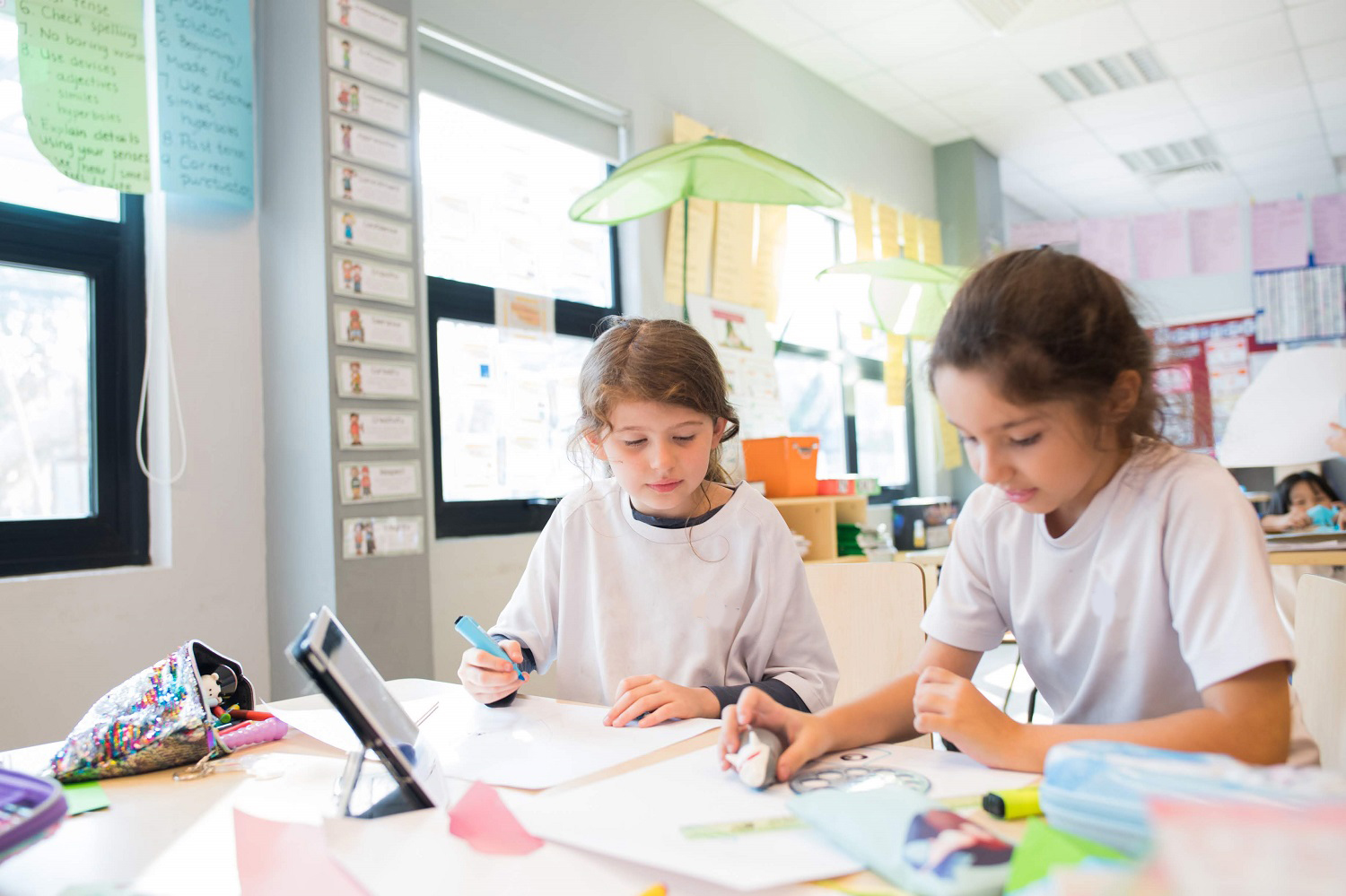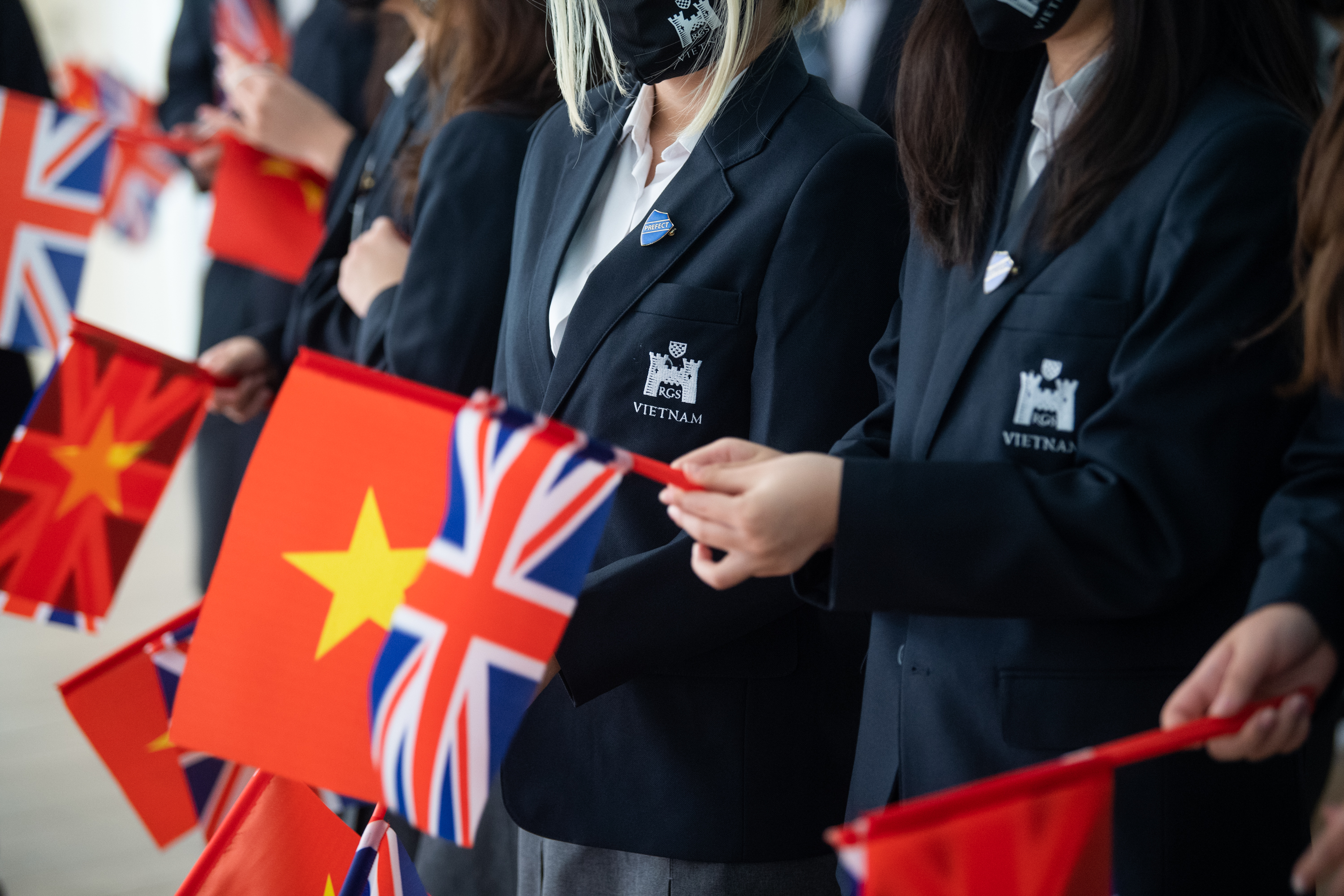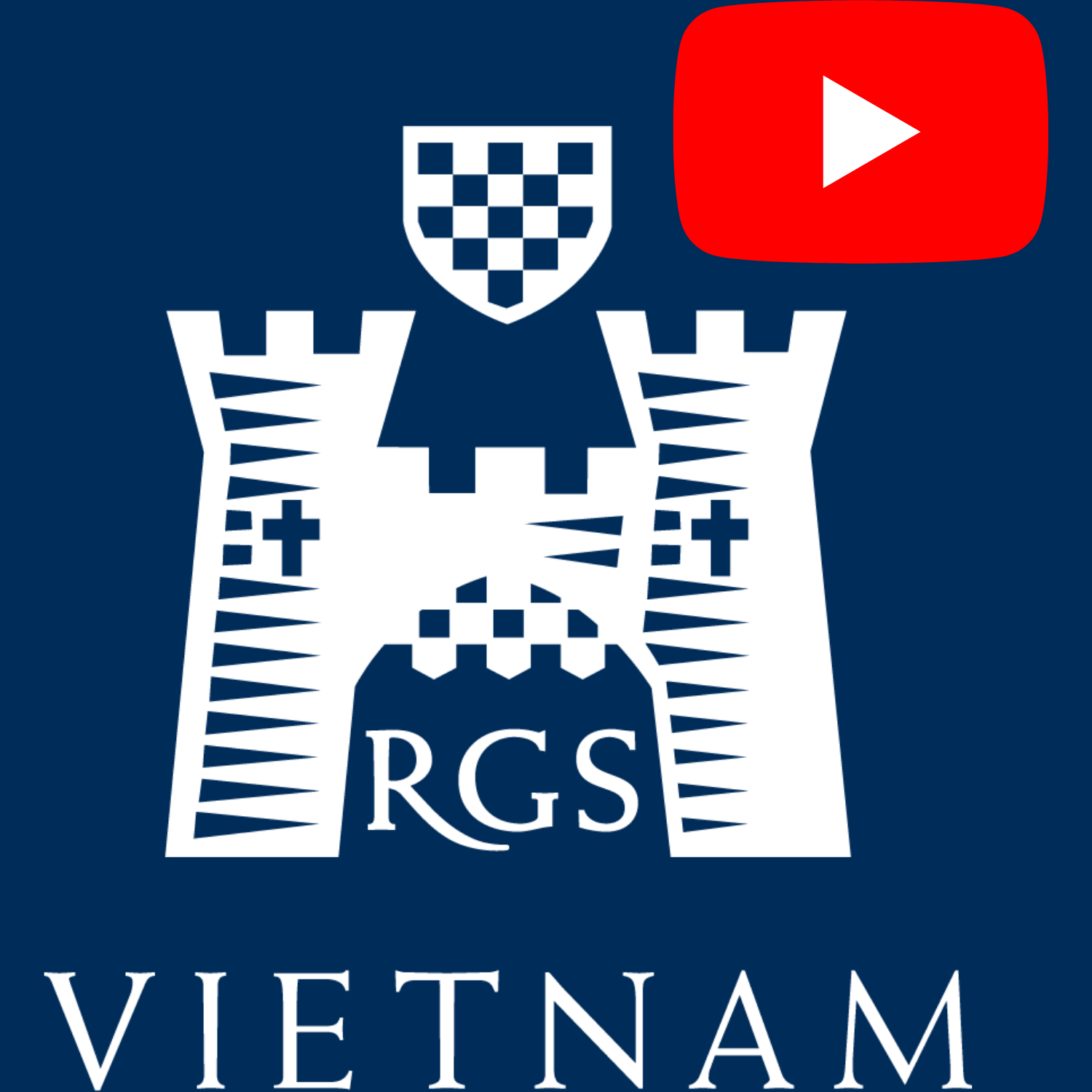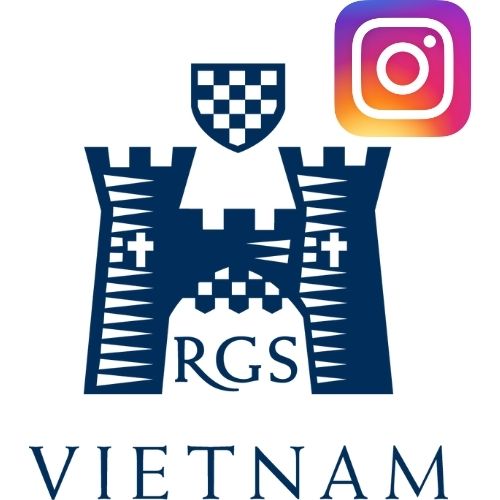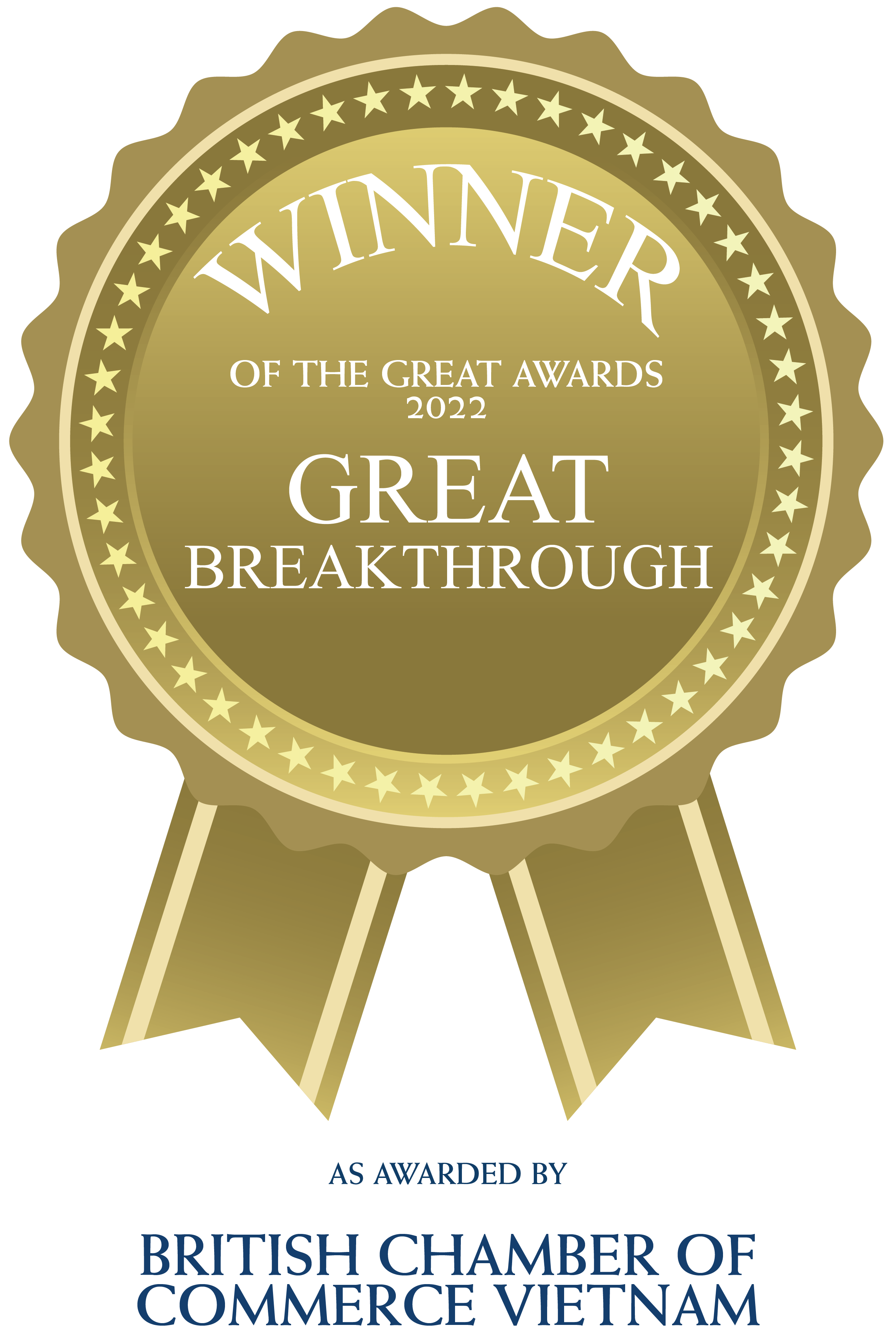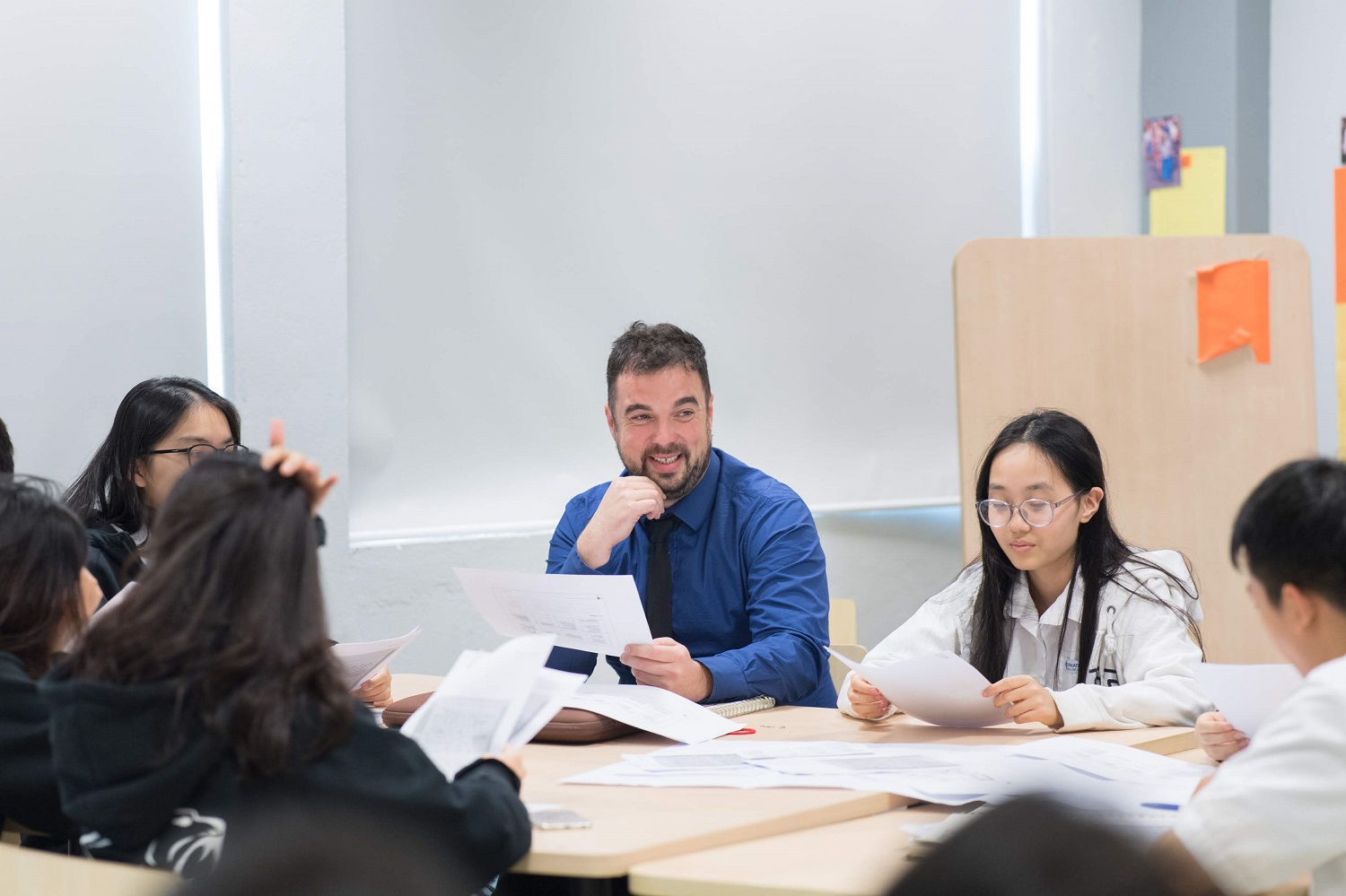
Diploma Programme (DP)
Reigate Grammar School Vietnam is an IB World School and offers its Diploma Programme to our post-16 students.
At RGS Vietnam, you have a local centre for post-16 studies and will not have to make a long and exhausting journey in order to continue your education. By progressing naturally to RGS Vietnam’s Upper Secondary section, you will build on the excellent foundation you have already achieved in preparation for your future profession and will not experience the ‘dislocation’ that can often follow a change of school. If you are thinking of joining us for your IB Diploma studies, you will be made to feel really welcome, and you will quickly feel at home in the positive, caring family community that is Reigate Grammar School Vietnam.
Years 12 and 13 (for 16 to 18 year old students) offers the IB Diploma Programme because it is widely regarded as the Gold Standard of International education. Some university courses stipulate specific IB Diploma subject qualifications to embark on certain specialist degrees, particularly leading to dentistry, veterinary and medical qualifications.
Opting to take the IB Diploma at RGS Vietnam means you keep your options open for your future. You will achieve the necessary qualifications which will enable you to move on to the Higher Education phase – applying to study at university - and also gain qualifications which will make your CV attractive to a future employer.
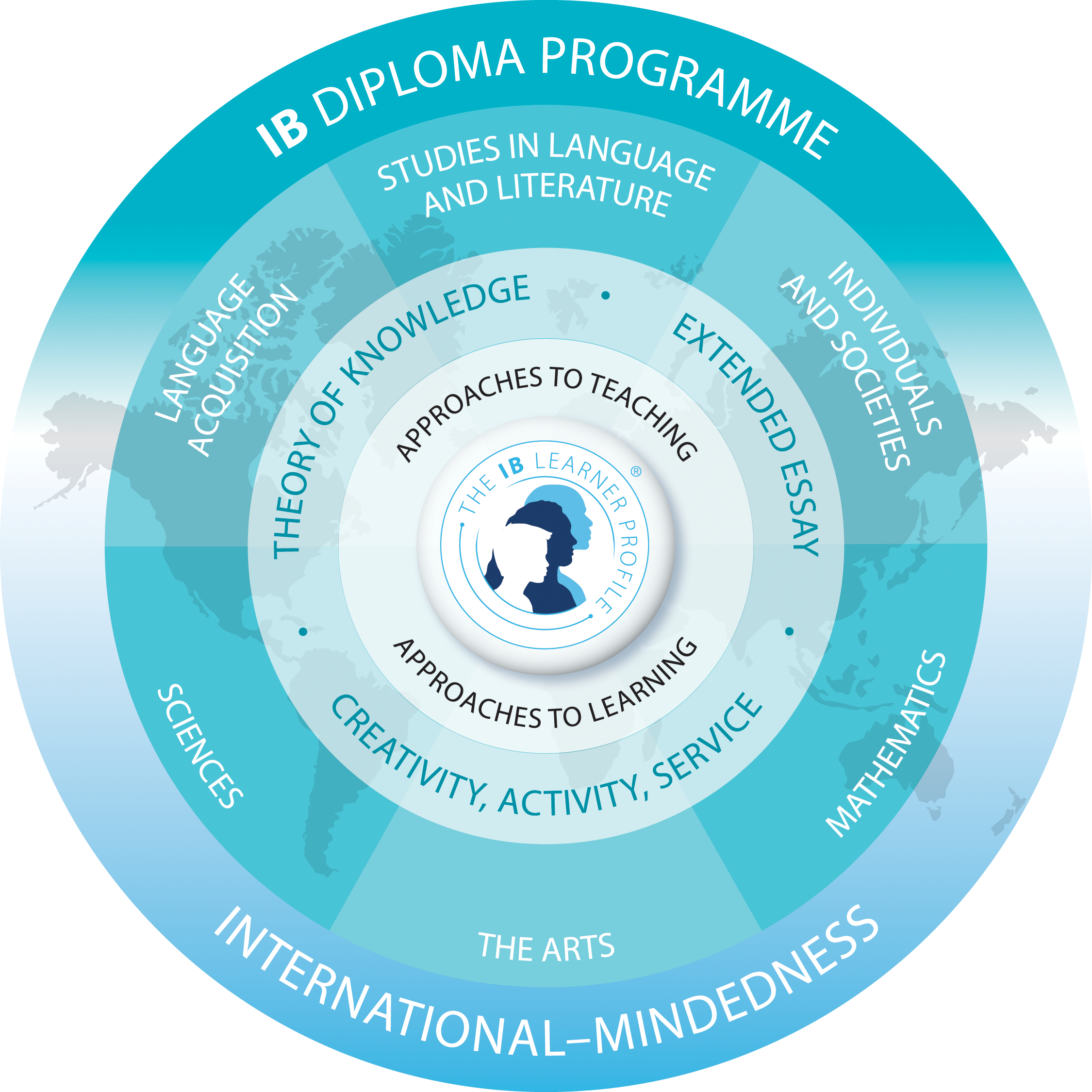
What is the Diploma Programme?The IB Diploma Programme (DP) is an academically challenging and balanced programme of education with final examinations that prepares students, aged 16 to 19, for success at university and life beyond. It has been designed to address the intellectual, social, emotional and physical well-being of students. The programme, has gained recognition and respect from the world’s leading universities.
The Diploma Programme prepares students for effective participation in a rapidly evolving and increasingly global society as they:
- develop physically, intellectually, emotionally and ethically
- acquire breadth and depth of knowledge and understanding, studying courses from 6 subject groups
- develop the skills and a positive attitude toward learning that will prepare them for higher education
- study at least two languages and increase understanding of cultures, including their own
- make connections across traditional academic disciplines and explore the nature of knowledge through the programme’s unique theory of knowledge course
- undertake in-depth research into an area of interest through the lens of one or more academic disciplines in the extended essay
- enhance their personal and interpersonal development through creativity, action and service
The Diploma Programme core
- The Extended Essay asks students to engage in independent research through an in-depth study of a question relating to one of the DP subjects they are studying. The world studies extended essay option allows students to focus on a topic of global significance which they examine through the lens of at least two DP subjects.
- Theory of Knowledge develops a coherent approach to learning that unifies the academic disciplines. In this course on critical thinking, students inquire into the nature of knowing and deepen their understanding of knowledge as a human construction.
- Creativity, Activity, Service (CAS) involves students in a range of activities alongside their academic studies throughout the Diploma Programme. Creativity encourages students to engage in the arts and creative thinking. Activity seeks to develop a healthy lifestyle through physical activity. Service with the community offers a vehicle for a new learning with academic value. The three strands of CAS enhance students’ personal and interpersonal development through experiential learning and enable journeys of self-discovery.
The curriculum
IB Diploma Programme students must choose one subject from each of five groups (1 to 5), ensuring breadth of knowledge and understanding in their best language, additional language(s), the social sciences, the experimental sciences and mathematics. Student may choose either an arts subject from group 6, or a second subject from groups 1 to 5.
Assessment
Students take written examinations at the end of the programme, which are marked by external IB examiners. Students also complete assessment tasks in the school, which are either initially marked by teachers and then moderated by external moderators or sent directly to external examiners.
The marks awarded for each course range from 1 (lowest) to 7 (highest). Students can also be awarded up to three additional points for their combined results on theory of knowledge and the extended essay. The diploma is awarded to students who gain at least 24 points, subject to certain minimum levels of performance across the whole programme and to satisfactory participation in the creativity, action, service requirement. The highest total that a Diploma Programme student can be awarded is 45 points.
Assessment is criterion-related, which means student performance is measured against pre-specified assessment criteria based on the aims and objectives of each subject curriculum, rather than the performance of other students taking the same examinations. The range of scores that students have attained remains statistically stable, and universities value the rigour and consistency of Diploma Programme assessment practice.
The IB Diploma earns UCAS (the UK University and Colleges Admissions Service) points in proportion to the grade achieved. Entry into university is determined by the total number of UCAS points earned, as well as the final IB Diploma grades. Our staff at RGS Vietnam are always happy to discuss and review with you and your parents the demands, benefits and challenges of different options, and to help you with any decisions that you might need to make.
Some of you know, we already have an outstanding team of teachers who have a vast range of experience. The team, including our University Counsellor, will also assist you in the university process to ensure that you are able to have every opportunity to progress to the University or Higher Education College of your choice.
Non-contact study periods are essential in Year 12 and Year 13 in order to complete supplementary reading, research and preparation: an invaluable component for success and we offer our dedicated Upper Secondary Study Suite as well as the School Library to our IBDP students for this.
Each IB Diploma student will be assigned a homeroom tutor and there will be prescribed homeroom time each week: to complete administrative tasks, and also an opportunity to discuss any academic, logistic or pastoral issues.
If you like the sound of all this, why not arrange to spend some time with us, to find out what RGS Vietnam really feels like?
Article 13: Award of the IB Diploma
13.1 All assessment components for each of the six subjects and the additional Diploma requirements must be completed in order to qualify for the award of the IB Diploma, except under the conditions stipulated in articles 18 and 19 of these regulations.
13.2 The IB Diploma will be awarded to a candidate provided all the following requirements have been met.
a. CAS requirements have been met.
b. The candidate’s total points are 24 or more.
c. There is no “N” awarded for theory of knowledge, the extended essay or for a contributing subject.
d. There is no grade E awarded for theory of knowledge and/or the extended essay.
e. There is no grade 1 awarded in a subject/level.
f. There are no more than two grade 2s awarded (HL or SL).
g. There are no more than three grade 3s or below awarded (HL or SL).
h. The candidate has gained 12 points or more on HL subjects (for candidates who register for four HL subjects, the three highest grades count).
i. The candidate has gained 9 points or more on SL subjects (candidates who register for two SL subjects must gain at least 5 points at SL).
j. The candidate has not received a penalty for academic misconduct from the Final Award Committee.
13.3 A maximum of three examination sessions is allowed in which to satisfy the requirements for the award of the IB Diploma. The examination sessions need not be consecutive
Quality assurance and professional development
Any school, or group of schools, wishing to offer one or more International Baccalaureate programmes as an IB World School must first be authorized. The requirements are the same for all schools, and the procedure is designed to ensure that schools are well prepared to implement the programme(s) successfully. All IB World Schools are required to participate in an ongoing process of review and development, using the same programme standards and practices.
As part of its ongoing commitment to the development of a highly skilled global learning community, the IB provides a wide range of high-quality professional development opportunities to help new, experienced and expert school leaders and educators understand, support, and successfully deliver IB programmes reflecting IB standards and practices.Information directed quoted from http://www.ibo.org/diploma/
For more information, please contact the School and the IB Diploma Coordinator or consult the IBO's website www.ibo.org
IB DP Subjects Guide for 2025-2027 Cohort can be found HERE.
